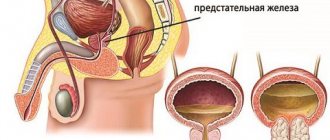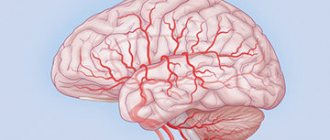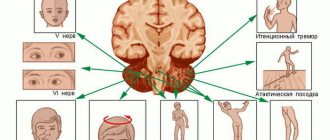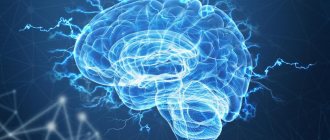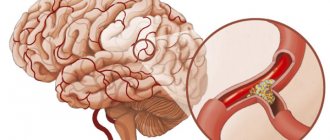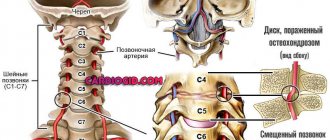HIV encephalopathy is a pathology that affects a person’s immune and nervous systems, and also destroys his brain. In addition, other internal organs of the patient also suffer, which gradually leads to a serious disruption of their functioning. The disease progresses quite slowly, killing immune cells.
As a result, the body loses the ability to resist various external factors that adversely affect it. In most cases, small children suffer from HIV encephalopathy, which is explained by their nervous system not being fully formed. The disease is extremely dangerous and therefore requires careful medical monitoring.
Nervous system lesions
In medicine, the symptoms of HIV encephalopathy are called differently: AIDS-dementia syndrome, neurospeed, HIV-associated neurocognitive impairment. Initially, patients were diagnosed with nervous system disorders associated with cytomegalovirus infection, tuberculosis, and candidiasis. As the mechanisms of damage to the central nervous system were studied, primary damage to the nervous system began to be identified.
Some patients maintain their mental health for a long time. However, the disorders gradually worsen and mental disorders appear as a result. The pathologies are explained by several factors:
- stress from the diagnosis;
- taking anti-HIV medications;
- rapid penetration of the virus into brain tissue.
Find out what dysmetabolic encephalopathy is. Under what pathologies does it develop?
Read how residual encephalopathy manifests itself. What does apaptosis lead to?
The severity of neurocognitive disorders is divided into several stages:
- Asymptomatic. Patients are unable to perform complex professional tasks. Otherwise, symptoms have little impact on quality of life.
- Lungs. Patients have problems in professional activities, in communicating with others, in performing household work.
- Heavy. The patient becomes disabled. As dementia progresses, a person loses the ability to care for themselves.
In addition to mental disorders, patients develop atrophic and inflammatory processes in the brain tissue. HIV encephalitis or meningitis often develops. An HIV patient with meningitis and encephalitis shows signs of these pathologies. Diseases often cause death of patients.
It is important to know! The rate at which the virus destroys neurons depends on factors such as injury, drug use, current inflammatory processes, tuberculosis, kidney and liver failure.
Diagnostic and therapeutic measures
After infection with the immunodeficiency virus, it may take a long time before the patient begins to show the first signs of AIDS. The same applies to encephalopathy caused by HIV. It can be discovered completely by accident, especially at an early stage of development. After which a comprehensive examination is prescribed - the key to making a correct diagnosis, which, in turn, has a huge impact on the choice of treatment method.
The disease can be identified using:
- lumbar puncture, with which you can identify the first pathological changes in the functioning of the nervous system;
- tomography (MRI) - helps to detect changes in the structure of the white brain matter;
- rheoencephalography (REG), which makes it possible to assess the condition of the vessels and arteries of the patient’s central nervous system;
- Dopplerography necessary to assess the condition of cerebral blood vessels.
Complications of encephalopathy from the nervous system can be avoided only if treatment for the pathology is started in a timely manner. In this case, the patient is shown:
- Drug therapy methods, including the use of:
- potent antiviral drugs (Zidovudine, Nelfinavir, Abacavir);

sedatives (Glycine);- sleeping pills (Sonnat).
antidepressants (amitriptyline);
Only a neuropathologist or psychiatrist can determine exactly which drugs and methods of psychological influence for encephalopathy should be used in each specific case. It all depends on how severe the patient’s pathology is, because this is directly related to the individual characteristics of the human body.
Development of HIV encephalopathy
Dementia develops due to damage to brain tissue cells by a virus. In patients, neuroglial cells (astrocytes) are affected, microglial cells, which are actively involved in the fight against infection and inflammation, are damaged. Other causes include accelerated neuronal death (apoptosis). In patients, the electrolyte balance in the brain tissue is disturbed.
Pathological processes are cyclical and depend on the state of the patient’s immune system. Perhaps this circumstance explains the earlier development of dementia in some patients.
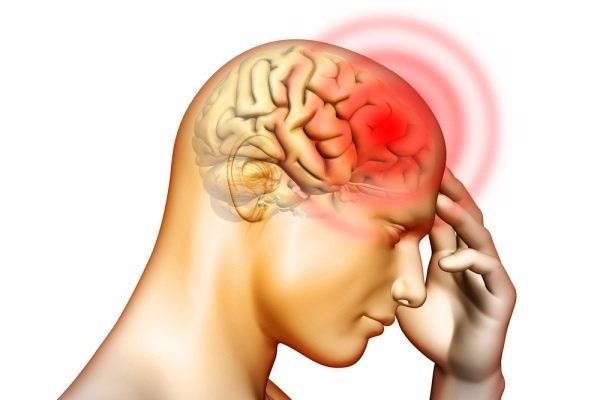
Subsequently, other inflammatory processes join in the destruction of neurons. Brain tissue begins to actively attack microbes, viruses, fungal infections, and protozoa. In patients, as a result of intoxication, microcirculation in the brain tissue is disrupted, which leads to increased intracranial pressure, cerebral edema, and a decrease in oxygen content in the blood.
The patient's brain begins to deteriorate. This process can last from several months to several years. However, against the background of tuberculosis, mycoplasmosis and other infections, the process of brain destruction accelerates. The prognosis for the patient's life is unfavorable, which is calculated in several days or weeks.
Features of the infection
HIV (human immunodeficiency virus) is an infectious disease that affects the human immune system. The last stage is called AIDS (acquired immunodeficiency syndrome). Its first signs are similar to those of other diseases. Therefore, it is impossible to diagnose it without analysis.
There are three main routes of transmission of HIV infection:
- through unprotected sexual contact (without a condom);
- through contact with blood when using shared syringes or other objects;
- from mother to child during pregnancy, after childbirth or through breastfeeding.
The modes of transmission of HIV are few. It is impossible to become infected through saliva, sweat or urine. There is no virus in these biological fluids.
Causes
The virus enters the blood and begins to destroy immune cells, multiplying on their basis. As a result, the immune system is suppressed and weakens the body's defenses. At this time, the body begins to be affected by additional infections that a healthy body could cope with without difficulty. For an infected person, the infection becomes fatal.
Prevention of HIV infection
Prevention of HIV infection consists of periodic examinations, the use of protective equipment during sexual intercourse, the prevention of contact with the blood of other people, and the dissemination of information about the disease.
Manifestations of HIV encephalopathy
Patients develop obsessive-compulsive disorders. Patients can study and examine their body for a long time, they are haunted by obsessive memories of sexual intercourse that led to infection, thoughts of death, and anxiety for loved ones do not leave them.
In some cases, delirium (madness) develops. Usually the first symptoms appear at night and do not go away for several hours or days. The main manifestations of delirium are:
- disorientation;
- lack of recognition of oneself and others;
- decreased concentration;
- absent-mindedness;
- psychomotor agitation;
- fright;
- aggression.
The patient usually feels better during the day, but delirium may reappear at night. The patient's impairment of consciousness is accompanied by temporary memory loss. During attacks, patients experience meaningless repetitive actions and fantasies.
Important! Delirium often develops in patients using psychotropic medications, HIV medications, alcohol, and drugs. The risk of psychological disorders increases if the patient develops meningitis, cytomegalovirus encephalitis, bacteremia, Kaposi's sarcoma, or hypoxia.
In addition to mental disorders, every second patient develops a seizure disorder. Usually observed in patients with cytomegalovirus infection, oxygen deficiency, liver and kidney diseases. In some cases, medications cause seizures. Carriers of HIV infection may develop aphasia, impaired attention and memory.
One of the severe complications of encephalopathy is dementia. Usually occurs in every fifth patient. Patients with dementia exhibit the following symptoms:
- deterioration of cognitive function;
- decreased attention;
- memory loss;
- coordination problems;
- apathy;
- fast fatiguability;
- irritability.
Dementia in HIV patients progresses rapidly, is untreatable and leads to death. In the later stages of the disease, AIDS-dementia syndrome develops against the background of a fungal or viral infection. Patients' intelligence decreases.
Important! AIDS dementia syndrome often develops in individuals with toxoplasmosis, meningitis, and lymphoma.
The pathology is a consequence of acute encephalopathy. Patients initially experience drowsiness, malaise, and convulsions. Then comes forgetfulness, unsteady gait, urinary incontinence, mood swings, movement disorders, and depression.
Patients' personality disorders cause them to do "unreasonable" things. This complicates treatment and maintaining the patient’s quality of life at the proper level. The destruction of brain tissue causes some patients to engage in risky behavior that puts their lives at risk.
Other behavioral deviations include addiction to alcohol and drugs, risky sexual behavior (leads to HIV transmission), and a tendency to violence.
All about dyscirculatory encephalopathy: causes, symptoms, treatment.
Find out what toxic encephalopathy of the brain leads to. Causes of pathology.
All about encephalopathy: what damage to the white matter leads to.
Irreversible disease: stage five
The terminal stage is characterized by the progression of existing diseases. At this stage, treatment is no longer effective and will only slightly alleviate the patient’s condition. Patients die within a few months. It is important that all the above data are of an average nature: there are known cases of both sufficiently long and relatively successful treatment (up to 20 years) after infection, and situations where patients died within several months. This is due to the characteristics of the immune system.
Why indicator pathologies develop
Almost 60% of patients experience a long asymptomatic period of carriage of the virus. In this case, HIV interacts with the patient’s body, destroys the immune system and penetrates healthy cells, and can cause diseases, some of which may be characteristic of any person, while others are a direct indication of the spread of the immunodeficiency virus. HIV-associated diseases are most often called markers of AIDS. They arise at the stage when a person becomes exposed to a wide range of pathogens, and become the main diagnostic criteria for determining the correct diagnosis.
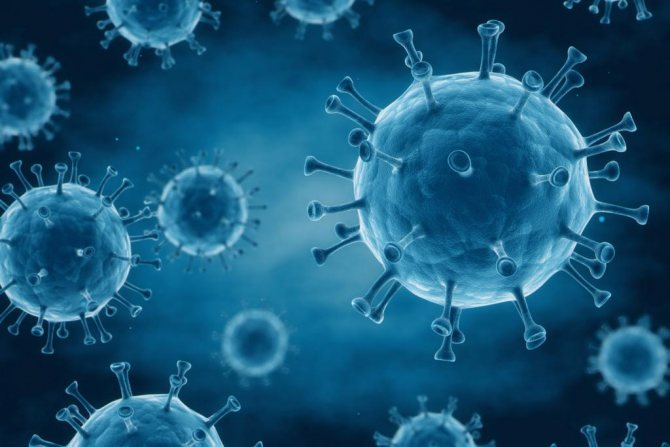
Establishing diagnosis
NeuroAIDS occurs quite often, in most patients with HIV, so all carriers of the infection are recommended to undergo regular examination by a neurologist. HIV encephalopathy initially manifests itself in impaired cognitive functions, so in addition to studying the neurological status, it is also necessary to conduct a neuropsychological examination.
In addition to the basic studies that patients with HIV undergo, to diagnose neuroAIDS it is necessary to turn to tomographic, electrophysiological and liquorological research methods.
Patients can also be referred for consultation to a neurosurgeon, psychiatrist, and other specialists. The effectiveness of treatment of the nervous system is analyzed for the most part using electrophysical research methods (electromyography, electroneuromyography, evoked potential research).
Disturbances in the nervous system in neuroAIDS, as well as the study of their course and the results of therapy, are studied using computed tomography and magnetic resonance imaging.
An analysis of cerebrospinal fluid, which is collected using a lumbar puncture, is also often prescribed. If the patient, in addition to neurological manifestations, a decrease in the number of CD4 lymphocytes, has an increased protein level in the cerebrospinal fluid analysis, a decreased glucose concentration, and moderate lymphocytosis, then we are talking about the likelihood of developing neuroAIDS.
Source: NeuroDoc.ru
Useful tips
Testing for HIV status is recommended for all persons who potentially have AIDS-defining diseases or alarming symptoms characteristic of the first two periods of development of the virus in the body. In case of a positive result, you need to remember that the earlier treatment is started, the more effective it is. Help for HIV-infected people should be comprehensive: treatment, consultations about everyday life and psychological support. Relatives and partners of HIV-positive patients may also need to consult a psychologist. Some centers offer anonymous advice.
Kaposi's sarcoma under 60 years of age
An HIV-associated disease, which, with significantly weakened immunity, develops in populations uncharacteristic for this pathology, is Kaposi's sarcoma, which is malignant. The tumor is quite rare in HIV-negative patients. More common among older Europeans living in the Mediterranean region. But with HIV, tumor processes can appear in any age group. More often the disease affects men.
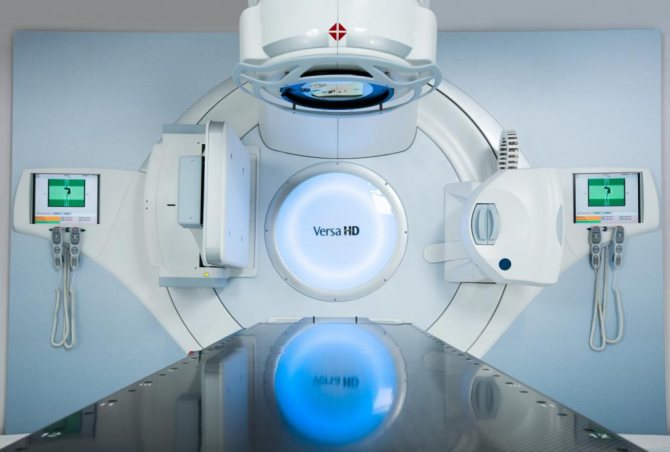
Clinically, sarcoma is manifested by the appearance of purple or brown spots on the skin. After the formation of the main node, the disease can spread throughout the body. In severe cases or significant spread, the disease can cause the death of the patient. The treatment process includes radiation and chemotherapy, surgery, photodynamic therapy, and cryotherapy.
